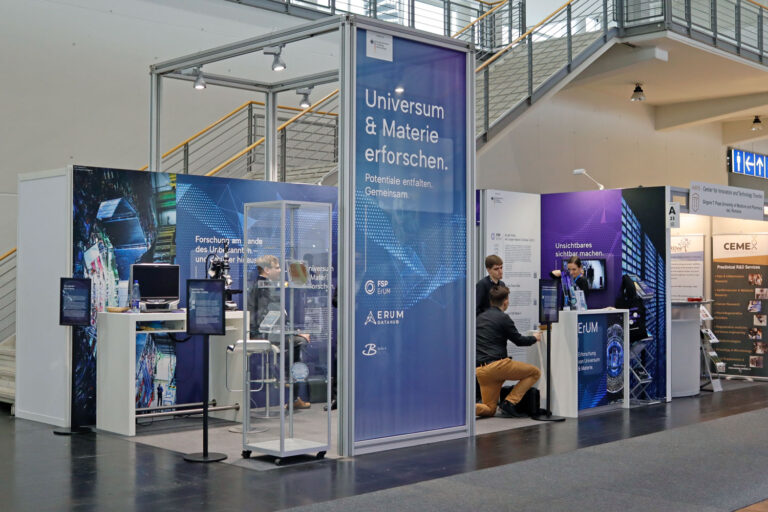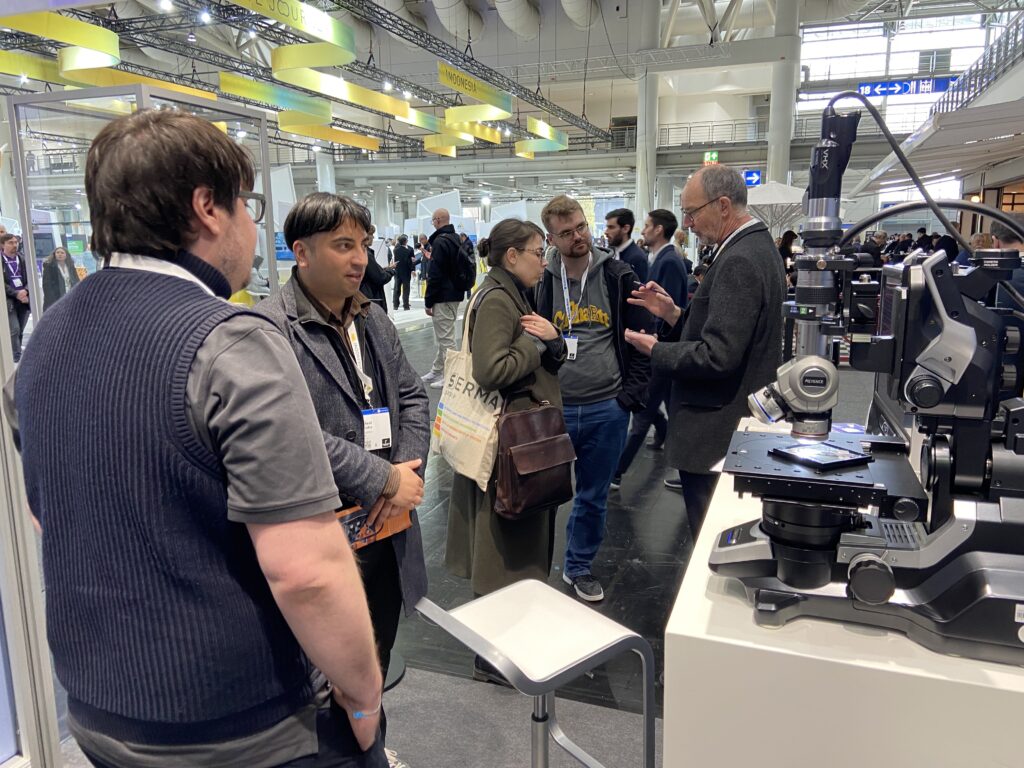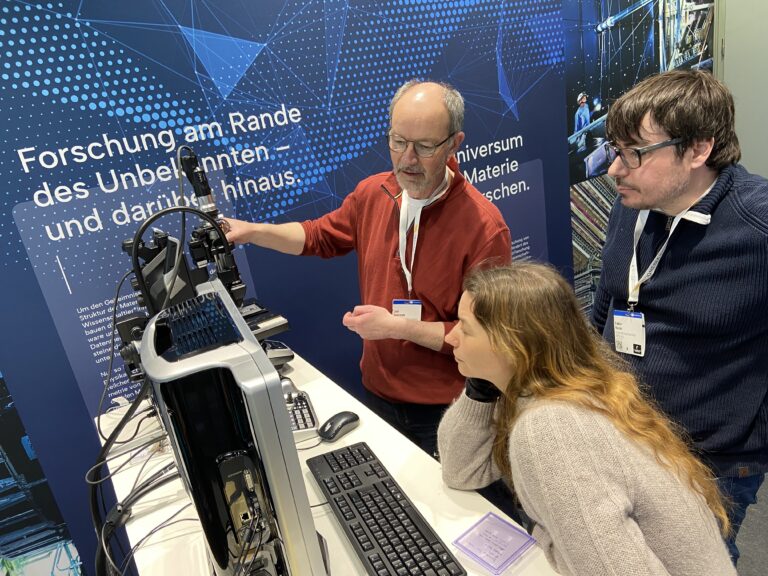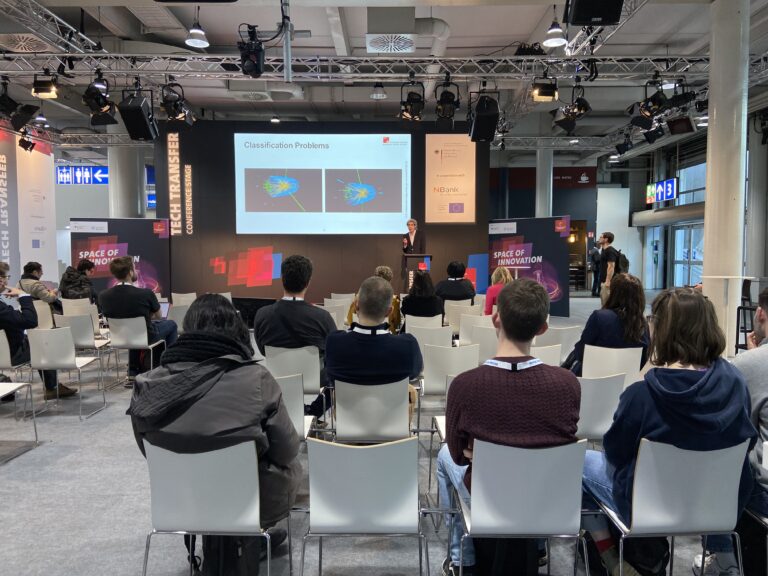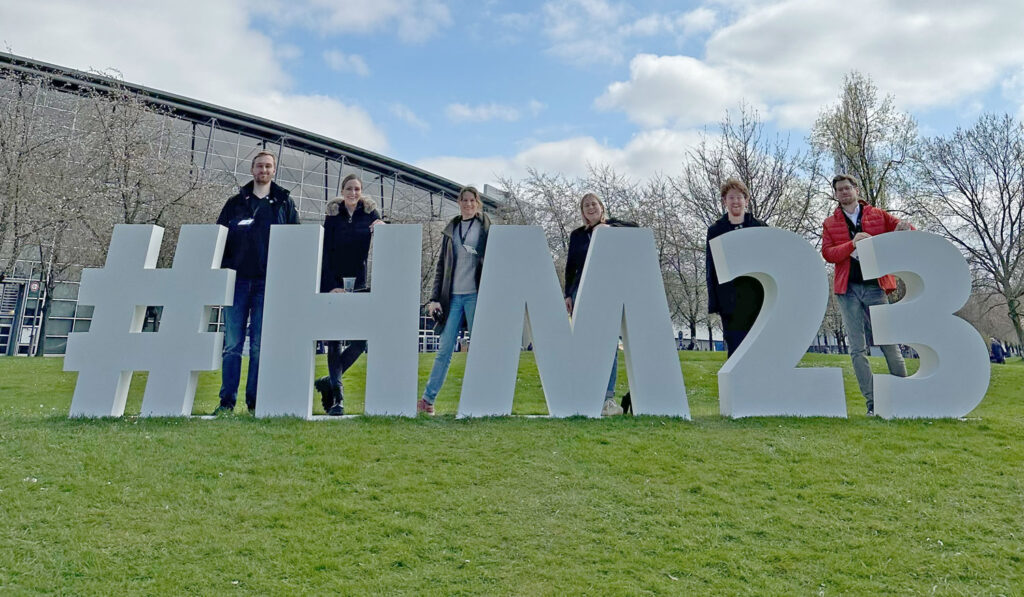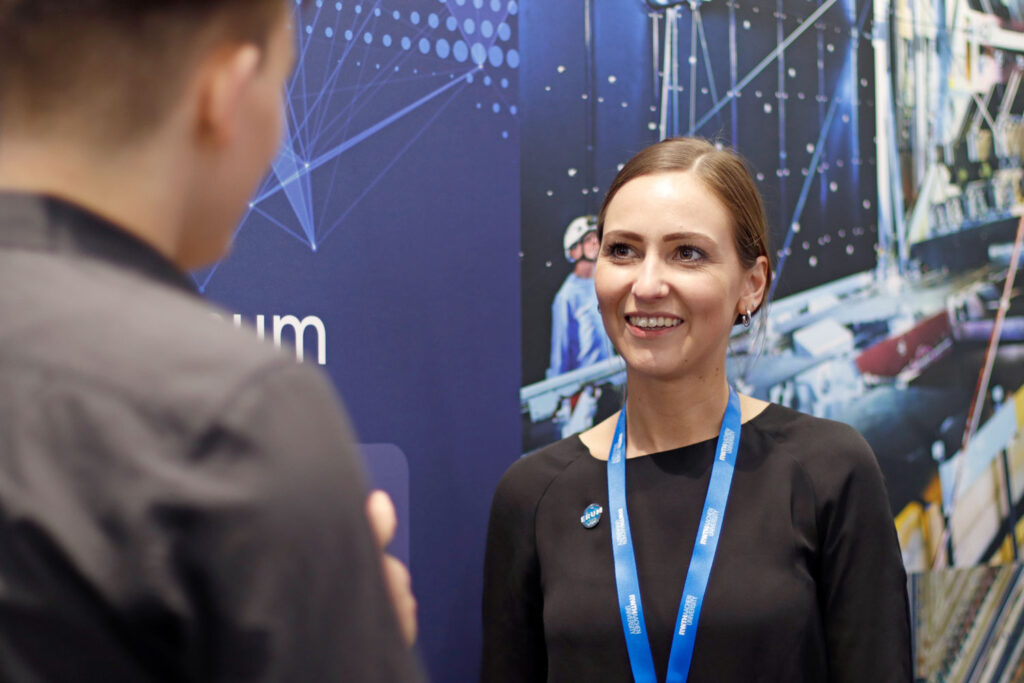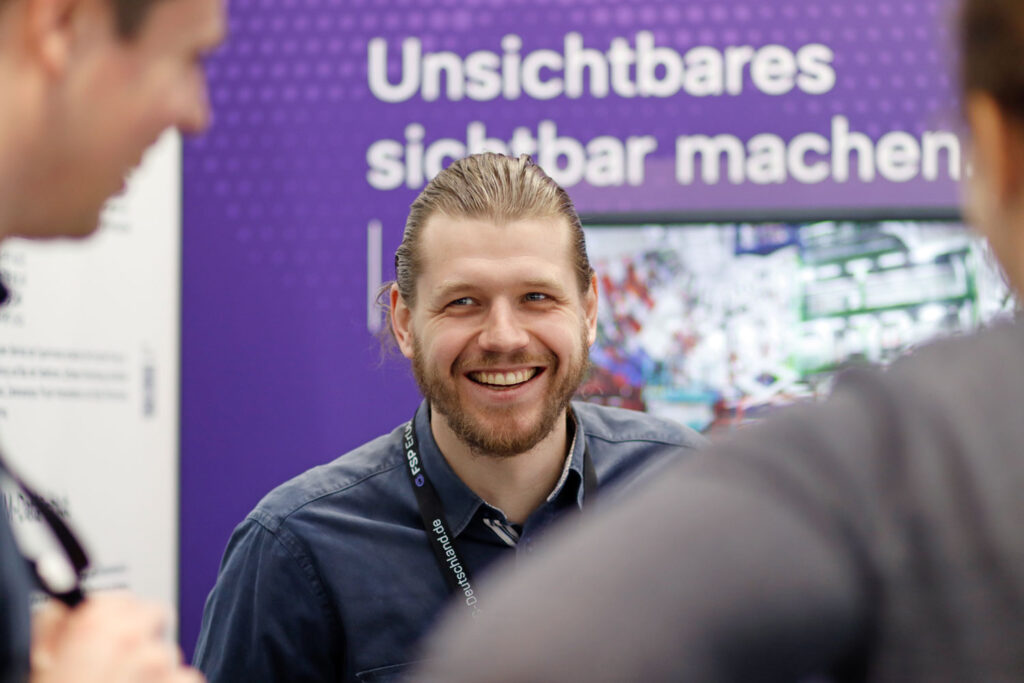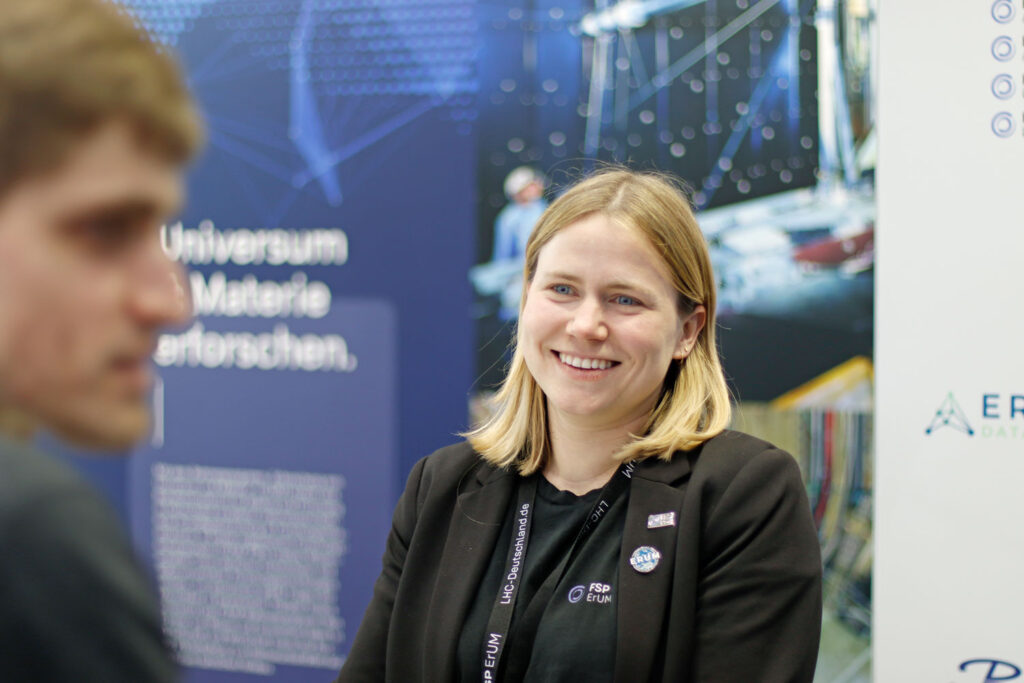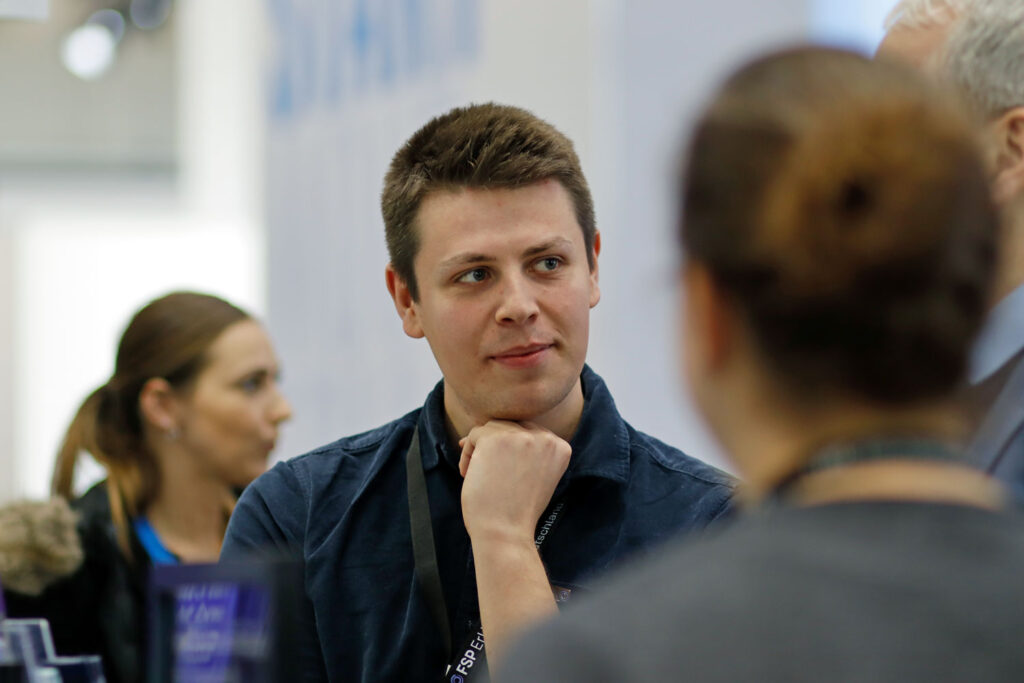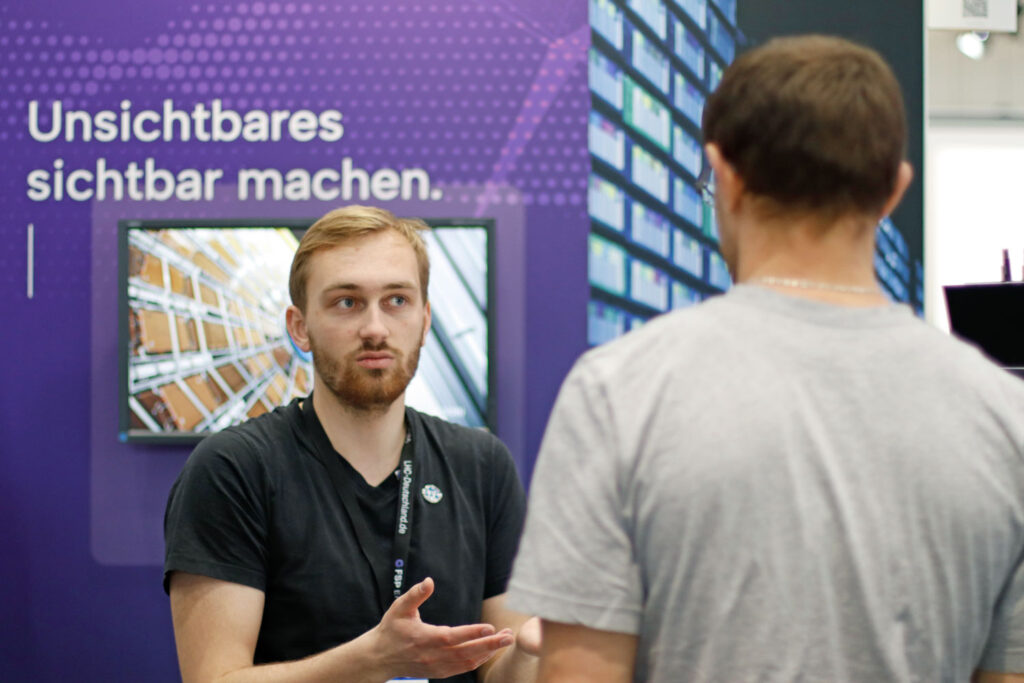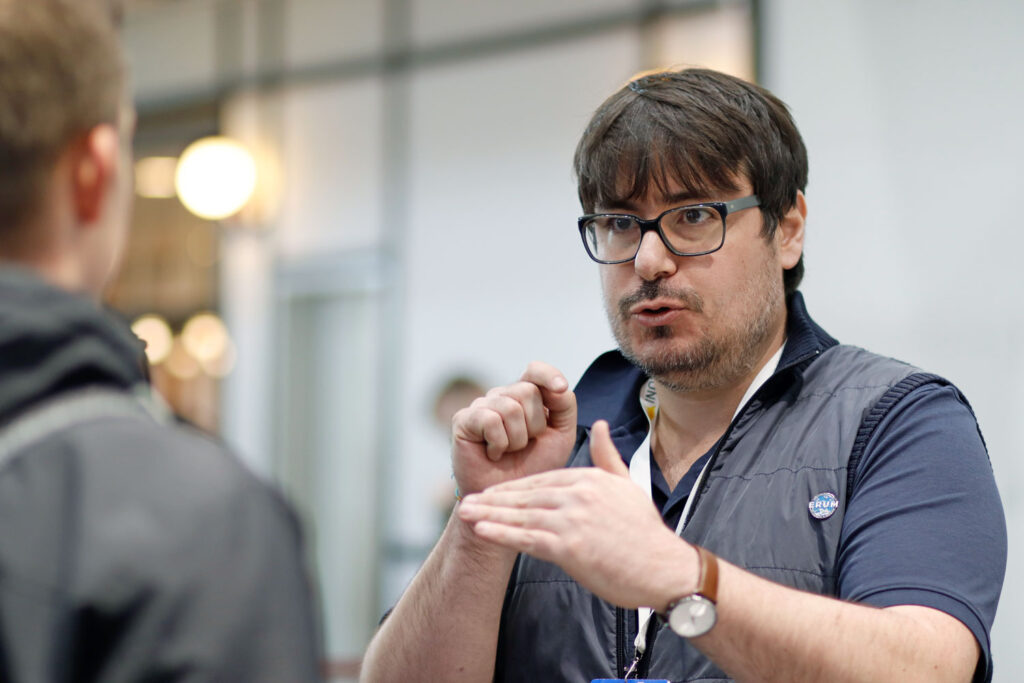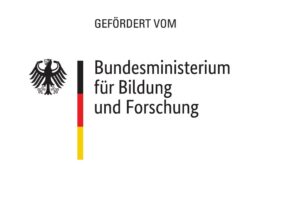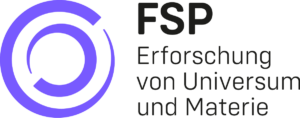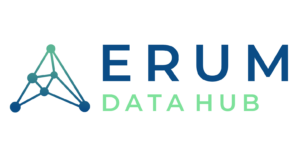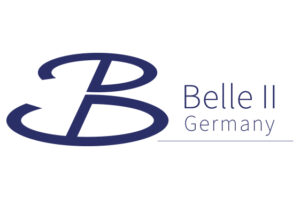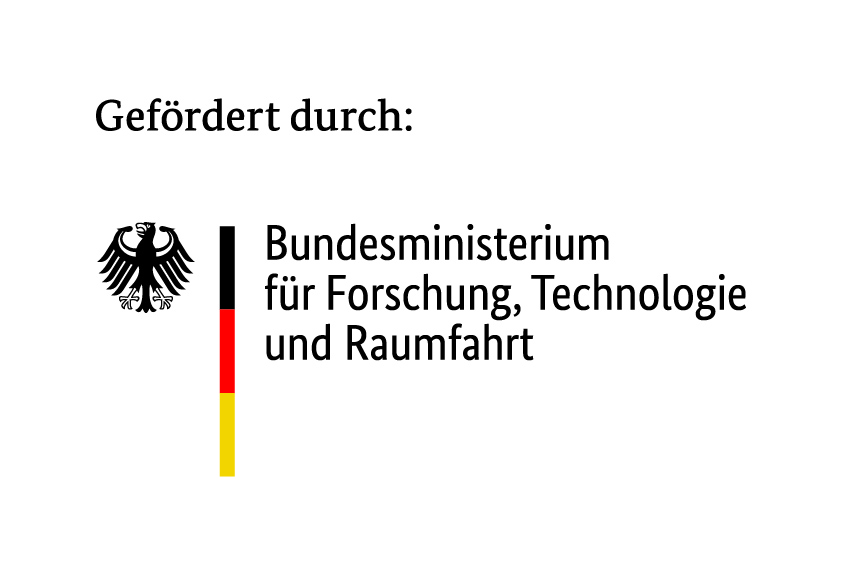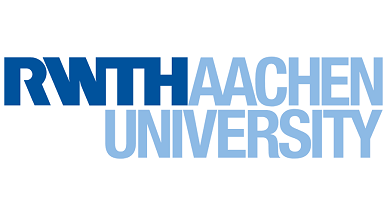Hannover Messe 2023
Together for science: Exhibition stand for the exploration of the universe and matter inspires visitors at the Hanover Fair
Aachen/Hamburg/München, 28-04-2023: The ErUM research focus at the Large Hadron Collider, the ErUM Data Hub and Belle II Germany participated for the first time with a cooperative exhibition stand at the Hannover Messe. For one week, visitors were able to gain exciting insights into the everyday work of German scientists in the exploration of the universe and matter.
From April 17 to 20th, more than 4,000 exhibitors from over 70 countries presented their latest innovations, products and services at Germany's largest industrial trade fair. The Hannover Messe offered 130,000 visitors from all over the world the opportunity to find out about innovative technology trends, discover lucrative business opportunities and make interesting contacts. Among the most prominent visitors were German Chancellor Olaf Scholz and Bettina Stark-Watzinger, Federal Minister of Education and Research.
Research on Universe and Matter also at the Hannover Messe
The four ErUM research centers at the Large Hadron Collider (ALICE, ATLAS, CMS and LHCb), the ErUM Data Hub and Belle II Germany participated for the first time with a joint booth at the Hannover Messe. Under the claim "Explore Universe and Matter. Unleash potential. Together.", the project partners pursued the common goal of establishing contacts with industry representatives and identifying interfaces for the transfer of knowledge and technologies to industry. At the same time, they used the opportunity to inform the interested public about current research results and everyday scientific life.
The collaborative exhibition stand in Hall 2, the so-called Future Hub, attracted many visitors to the fair and the public was able to experience first-hand what it means to explore the universe and matter, how the particle detectors at the Large Hadron Collider and the SuperKEKB are constructed, and which methods are subsequently used to analyze the collected data. A special highlight and real crowd puller was a microscope with which a fragment of a DEPFET pixel detector, produced by the semiconductor laboratory of the Max Planck Society, could be admired in close-up.
Particularly interested visitors were able to attend a talk by Dr. Karim El Morabit on the Tech Transfer Stage on Wednesday evening. The physicist from the University of Hamburg spoke in a generally understandable way about the latest applications of machine learning in particle physics and was able to inspire the audience even in the late evening.
A successful exhibition stand and a valuable xperience
Overall, the Hannover Messe 2023 was a great success for all project partners, who were able to present their work to a wide audience and make new contacts. The joint exhibition stand helped to raise awareness of the importance of exploring the universe and matter. The positive response of visitors to the joint stand clearly showed that industrial trade fairs are also a suitable venue for research projects and promote exchange between science and industry. The joint organization and implementation of the trade fair participation also proved that ErUM projects benefit greatly from close exchange and trusting cooperation. In the future, too, new avenues of cooperation will be explored and the focus will be on strengthening the ErUM spirit of togetherness.

